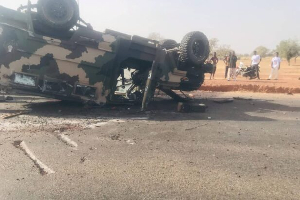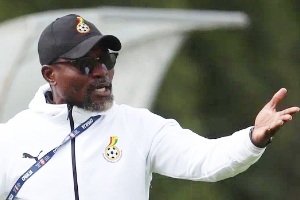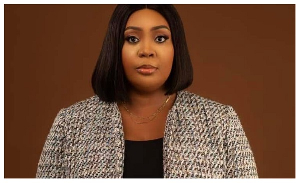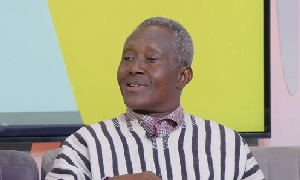A major problem with our current Supreme Court is that it is yet to take a deep introspective look at some of its decisions. With some of the judges deploying a kind of legal reasoning that suggests they consider the outcome of cases much more important than the legal moves and reasoning leading to these outcomes, we have been treated to some amazing decisions with the remote effect of softly “killing” the spirit of our constitution. Decades of Supreme Court precedents, and sophisticated lines of reasoning carefully worked out by some of our greatest judge-jurists including Mr. Justice Richard Apaloo,Mr. Justice Akufo-Addo,Mr. Justice A.N.E Amissah,Mr. Justice Adade, Mr. Justice Taylor,Mr. Justice Sowah,Mrs. Annie-Jiagge, seem to count for very little. Apparently, under a mistaken belief that all Supreme Court adjudication is just POLICY to be formulated through the beliefs, values and preferences of our judges, it is increasingly becoming clear some Supreme Court decisions on major issues of governance lack analytical rigor with disastrous consequences for the entrenchment of positive constitutional values in our country. We can cite numerous examples.
By one nasty shot the Supreme Court, in the Anane Case, enfeebled CHRAJ in its investigative mandate. As if echoing President J .A Kufour, the main thrust of its decision can be expressed thus: “come forward with evidence” before CHRAJ can investigate some allegations of abuse of power. The historical evidence found in the proposals to the 1968 draft constitutional proposals was ignored. What is more, without any plausible explanation, the majority decision failed to the submissions of counsel to the effect that when the functions of CHRAJ are viewed from a historical lens, CHRAJ as the successor to the Office of the Ombudsperson, has the power to investigate allegations of corruption and abuse of power involving public officials without a formal complaint by an identifiable complainant.
One justice couldn’t accept the majority decision in the Anane Case. Writhing in judicial pain, I imagine, he let his heart out:
“…I am deeply mindful that this is a ‘timorous soul’ or ‘bold spirit moment’….I am on this occasion inclined to be a bold spirit and not succumb to what would be a stunning failure of strategic vision of Re: Akoto…dimensions”
The brave Mr. Justice Dateh-Bah won’t be part of this stunning failure of strategic vision-undermining the corruption mandate of CHRAJ. He went his own way, and of course, his reasoning was much more refreshing than that of his colleague justices.
With the majority decision limiting the reach of CHRAJ’s corruption mandate, Anna Bossman, the CHRAJ boss, is now in a fix. Increasingly, she has become an advisor, advising us to lodge complaints with CHRAJ before investigations can be conducted into some allegations of corruption by public officials. By you know as well I do ,Dusuuru, the kayayoo, is too poor to go through the luxury of filing a complaint of corruption against that public officer.How do I earn my living if I am to spend days doing a case at CHRAJ? My instinct for economic survival as well as my fear of reprisal from the powers that be( a kayayoo is no much for them) will deter me from lodging any official complaint that won’t ‘butter’ my pocket in that country called a property-owning democracy!
The SC struck again in the Wulency Case when by some strange logic it said in election cases the last point of call is the Court of Appeal with no further appeal to the Supreme Court. As should be expected again, one brave soul, Ms. Justice Sofia Akufo, said “no” I won’t be part of this majority decision! So incoherent was this decision the majority failed to see that when in an election petition the last point of call became the Court of Appeal then every smart lawyer would urge the losing party to go to the SC through a certiorari application. And when this happens the SC must reformulate the grounds for the grant of certiorari application.
Why? Because some of these grounds only make sense when the alternative route of appeal to a higher court is available. So if there is no appeal in some cases then the SC has to reformulate new grounds for certiorari in such cases. The SC could well have prevented this by recognizing the right of appeal to the SC. Further, if the purpose of the decision was to bring an early closure on electoral petition cases, “did we go or did we come”, present the possibility of a certiorari application to the SC when the Court of Appeal had made its decision.
The SC struck again when in its review of the constitutionality of the Fast Track High Court, it did its utmost best never to address the main issues at stake:
1. WHAT IS MEANT BY A DIVISION OF THE HIGH COURT;
2. WHETHER BY ITS SPECIALLY DESIGNED RULES THE FAST TRACK HIGH COURT IS A DIVISION OF THE HIGH COURT.
It went “round, round, and round,” with lots of judicial rhetoric but never tackled these critical issues.
The SC struck again, when in one of the TSATUS CASES, it took a circuitous route to avoid addressing the question whether the law that the COURT OF APPEAL applied to confer immunity on the IFC did or did not to the IFC. Whether or not the law applied to the IFC was a matter of fact. Despite the centrality of this factual finding, the SC went ahead to rule on the certiorari application without making this critical factual determination.
The SC announced itself in a big way again, when on Friday June 24,2008, the reasons it filed for dismissing Tsatsu Tsikata’s certiorari application demonstrated the legendary “well-dodge” technique. It failed to address the main issue, which I take the liberty to present as follows:
When a judge makes a determination that she will await the judgment of the Court of Appeal and SC before she delivers her judgment (because doing so can result in a mistrial) and a party accepts and relies on this determination and takes no action to prevent the pre-emptive delivery of the judgment, can the court without any notice to the party revoke the earlier determination, and go ahead to read its judgment? Much so, when by virtue of the party’s reliance on the court’s decision, he sleeps on his legal right to apply for stay of proceedings to stop the court from readings its judgment before the delivery of the ruling of the SC?
To my mind, this was the main issue in the recent Tsatsu case on the violation of the right to fair trial. Unfortunately, here too the “well-dodge” technique was at play.
Not too long ago, the SC struck again when it basically stepped in to prevent the EC from publishing the details of the 2004 presidential elections. As of today, unlike for the parliamentary elections, we have no details of the 2004 presidential elections. The only detail we have reads like this: “President Kuffour was duly elected as president of Ghana in the 2004 elections”. We need details such as the number of votes cast for each presidential candidate, rejected ballots, total of votes casts etc in an official publication such as the gazette not only for our information but for posterity. Yet by some legal magic, we have been denied these details by the EC when as a matter of fact since 1992 these details, it seems, have been published in the gazette by the EC.
Our Electoral Commissioner, Dr. Afari- Gyan, the people of Ghana in whom the sovereignty of Ghana resides, deserve an explanation!
Anyone who has a social science background will accept this incontrovertible fact: when you get your data wrong your conclusions are most likely to be wrong. Even when you get your data right but you ask the wrong questions, you get wrong outcomes. Seemingly excluding relevant facts in court judgments, mis-stating or failing to address critical legal issues in order to give some coherence and plausibility to decisions made, leaves much to be desired . It is for all these reasons some judgments of our SC have negatively affected good governance and the development of salient constitutional values in our country..
Dusuuru Bamba
Dusuuru_bamba@yahoo.com
Opinions of Thursday, 6 November 2008
Columnist: Bamba, Dusuuru


















